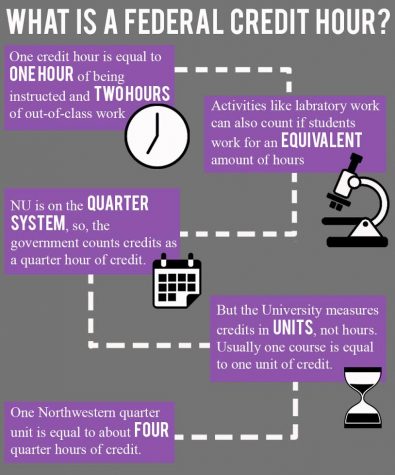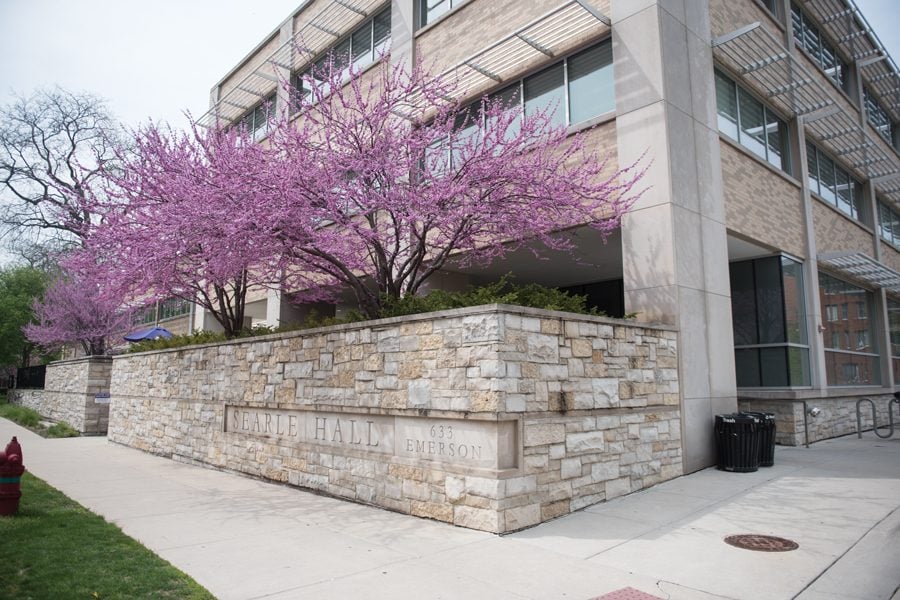ASG works toward creating mental health sick days, redefining AccessibleNU policies
Daily file photo by Katie Pach
Searle Hall, home to the University Health Service. Associated Student Government is working with AccessibleNU to implement policies that would allow students to take sick days for mental health reasons.
October 7, 2019
Associated Student Government is working with the University to implement policies that would allow students registered with AccessibleNU to take excused absences for mental health reasons, ASG President Izzy Dobbel said.
If implemented, AccessibleNU students can take “mental health sick days” with no questions asked. Currently, these students can receive accommodations if they communicate with AccessibleNU and their professors, but some students find the process uncomfortable and extensive.
For Communication senior Shane Eichstaedt, taking a day off from class to focus on their mental well-being has been an intimidating process.
They had to email professors, explaining why they needed time off during their “most vulnerable moments.” Sometimes they’ve lied, choosing to tell a professor they were physically ill instead of the truth.
“The amount of times that I have had to email professors mid-panic, or at the lowest lows of a moment of depression, in a true moment of suicidal ideation, to email them saying, ‘I can’t come to class brings intense feelings of failure,” Eichstaedt said.
Dobbel and Executive Vice President Adam Davies campaigned on prioritizing mental health on campus. They introduced a policy to allow excused absences for mental health last spring.
Other universities have implemented similar policies for the entire student body. At Duke University, any student can fill out an Incapacitation Form that exempts them from completing an assignment or attending a class for mental health reasons. The students then has 48 hours to contact instructors and make up any coursework they missed. The Incapacitation Form can be used up to three times in a semester.
Dobbel said she wanted Northwestern to create a policy similar to Duke’s, and she received approval from the administration to start developing one. However, she ran into federal policy roadblocks that forced ASG to reevaluate and make more local changes in the meantime.
Northwestern students must remain in class for a certain amount of hours, according to the federal government’s credit hour policy. Meeting the minimum hours is mandatory for all accredited universities. Dobbel said because the quarter system is already “so condensed,” there wasn’t a way to create a campus-wide system that would allow students to miss a certain amount of days in a quarter. Duke — which is under the semester system — was able to work around the federal policy.

However, students say they would appreciate it if the University gave them sick days, specifically for mental health. Eichstaedt said that the lack of a policy makes it seem as though the University doesn’t care about students with mental illnesses.
“If I didn’t have to put my whole self-worth on defense in order to protect myself, I would feel so much safer here,” Eichstaedt said. “I would feel like I deserve to be here more, because I don’t always feel that way.”
Eichstaedt added that there were larger systemic changes that need to be implemented for students with mental illnesses to feel welcome on campus. Until then, more people need to support students struggling with their mental health, they said.
Dobbel said she is currently working with AccessibleNU to create defined and uniform guidelines for professors about how to treat students who are absent from class for mental health reasons.
Weinberg junior Grace Gay, who is registered for AccessibleNU, said she would like to see the program’s policies expanded to support students who aren’t diagnosed with a specific mental health condition.
“I know people that have been penalized for not being registered with AccessibleNU simply because maybe they can’t afford to go to therapy regularly and get that paperwork or because they don’t have the understanding that these things exist that can help you,” Gay said.
ASG met with Dean of Students Todd Adams and will meet the Duke University administration to discuss how they implemented a school-wide policy regarding the Incapacitation Form.
Until then, due to the federal restrictions, Dobbel said she can only clarify AccessibleNU accommodations. But she hopes that larger, more significant, improvements will happen in the future.
“I have not given up on what this can look like yet for Northwestern,” she said.
Email: [email protected]
Twitter: @neyachalam


